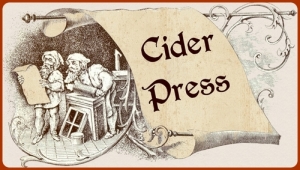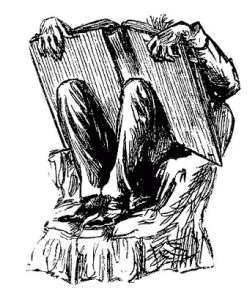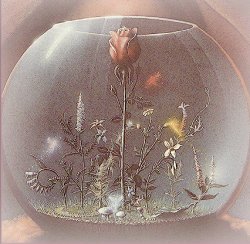The Music of an American Music Maverick
Anthony Philip Heinrich
Anthony Philip Heinrich (1781 - 1861) came very close to being totally lost in the well populated (and sometimes deserved) waste bin of American music history. But then!... in 1917, over 1000 pages of writings and close to 350 compositions) made it to the Library of Congress. And low and behold... this almost totally forgotten composer was rediscovered and found to be one of the more original composers in American history.
Born in Bohemia, Heinrich was given into the care of a wealthy uncle, and he inherited a very profitable business in 1800. In 1810 after traveling to America, while in Boston, he suffered the loss of his entire fortune in the Napoleonic Wars and the ensuing economic disaster.
Totally broke, he made the fateful decision to take up his long-time avocation and become a professional violinist and conductor!
He then became America's first full-time composer and the most well known before the Civil War. He was skilled in everything from full orchestra works to simple songs.An important experience for him was an adventurous 700-mile journey, on foot and by boat, into what was then the wilderness of Pennsylvania, and then along the Ohio River to Kentucky.
Shortly after his arrival in Kentucky in 1817, he conducted a performance of Beethoven's First Symphony—only the second time a Beethoven symphony had been performed in the United States.
Later, he was described as the "Beethoven of America" by a music critic.
Heinrich's experiences on the American frontier inspired some of the most original, and some call "strange", program music of the 1800s. After moving into a log cabin in K entucky in 1818, he began to create music much different and more original than most music being composed in Europe at the time.
A list of some of his creations include: A book of pieces called "The Dawning of Music in Kentucky or the Pleasures of Harmony in the Solitudes of Nature"; The Minstrelsy of Nature in the Wilds of North America; The Wild Wood Spirits' Chant and much more.Heinrich's music was incredibly original and he occasionally composed parts of amazing harmonies, rhythms and chromatics. Some of his music seems much like improvisation. His attempts to allow a performer to use their own interpretation are perhaps the beginning of experimental indeterminacy that late appeared in American music.
Heinrich later traveled on successful European tours and was well received. He nevertheless returned to America and died in 1861, neglected, in poverty and became almost unknown in the American music world with now only very occasional performances of his work.
You can read a very detailed description of Heimlich and many other American music mavericks in the book: Mavericks and Other Traditions in American Music by Michael Broyles.
The Music of Anthony Philip Heinrich
We have prepared a PDF file of the following piano solos, and one song by Heinrich. The PDF is scans of the original sheet music, prepared for easy printing on standard size paper.
Sonata for the Pianoforte
(From the book The Dawning of Music in Kentucky)
Song Without Words
Waltzes Pastorale
1. - The Shepherdess Waltz
2. - The Green Mountain Waltz
Legends of the Wildwood
1. Ischl or Union of Spirits
2. Quissahicon
3. The Old Harper (Song with lyrics)
The Laruel and the Cyprus
Images of Musical Thought
The March of the Muses
The Waltz of the Muses
The Return from SchoolIndian Fanfares
The Commanche Revel
The Sioux Galliarde
The Manitou Air DanceFrom Sacred Meditations
Evening Reflection (Song with lyrics)From the Sunset Chimes collection
The Boston Bard To His Old Coat (Song with lyrics)Pochantas
(a "grand concert waltz" dedicated to the descendants of Pochantas)The Western Minstrel
(A 33 page collection of songs and piano solos)
After your payment is processed,
you will be immediately sent by email the download link .
Early American music,
unusual & unique music,
and ephemera collection.
Visit the
Cider Press Home Page
Explore - The Amaranth Publishing
web pages
Including the music of the spheres, the music of a Renaissance alchemist, music created by software and artificial intelligence, the music of the fairies, the music of the Illuminati, the world's most mysterious book, the world's oldest song, a way you can compose music like Mozart, the world's oldest love song, and much more........
New...
The Cider Press Unique PDF ebook collection for historical researchers, music history researchers and for the just plain curious folks out there....



